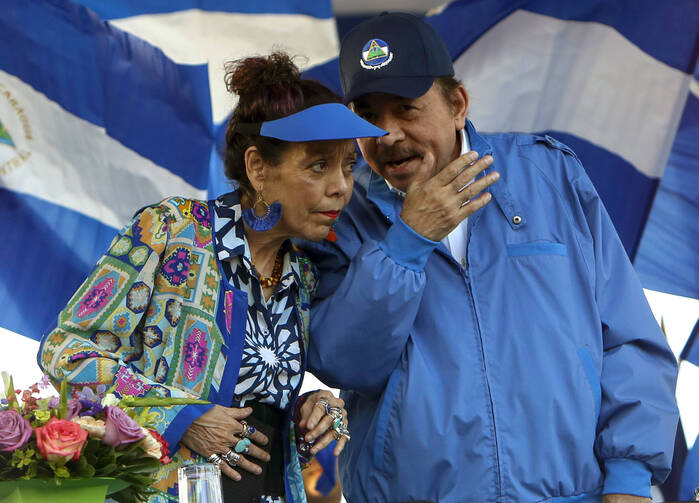MANAGUA, Nicaragua (AP) — The government and representatives of the opposition said Tuesday night that they have agreed on the underlying rules for a dialogue aimed at resolving Nicaragua's political turmoil that has cost hundreds of lives and dragged on for nearly a year.
The Vatican's ambassador, Waldemar Sommertag, read a joint statement from the two sides announcing a framework for talks.
After a week of meetings, the sides agreed that Sommertag will serve as a "witness" to the talks, but unlike a short-lived dialogue effort last year, there will not be mediators. Representatives of the Roman Catholic and evangelical churches in Nicaragua will be invited as domestic witnesses.
The sides also that said agreements will be reached by consensus and that those agreements will be the foundation of what the talks produce.
Sommertag said that so far "the negotiation had evolved in an atmosphere of mutual respect and search for understanding."
They set a tentative goal of finalizing negotiations March 28, but among the first hurdles will be agreeing on the agenda for the dialogue.
The Civic Alliance, representing the opposition, has demanded the release of political prisoners, restoration of the freedom of expression and electoral reform. The alliance had also demanded that "international guarantors" to participate in the dialogue, but it appeared that topic would have to wait until the substantive talks begin.
Critics among the opposition have expressed suspicion about the closed-door talks.
President Daniel Ortega has characterized protesters as coup plotters and some have been convicted and sentenced as terrorists, though international observers have reported no evidence of a coup attempt. Ortega has rejected demands that he move up elections scheduled for 2021.
At least 325 people have been killed and more than 2,000 wounded since demonstrations began last April, initially to protest a plan to social security payments but expanding into broader complaints against the government along with demands that Ortega give up the presidency. The government responded with force as police and paramilitary groups attacked protesters. Hundreds of people have been arrested, according to the Inter-American Commission on Human Rights.










